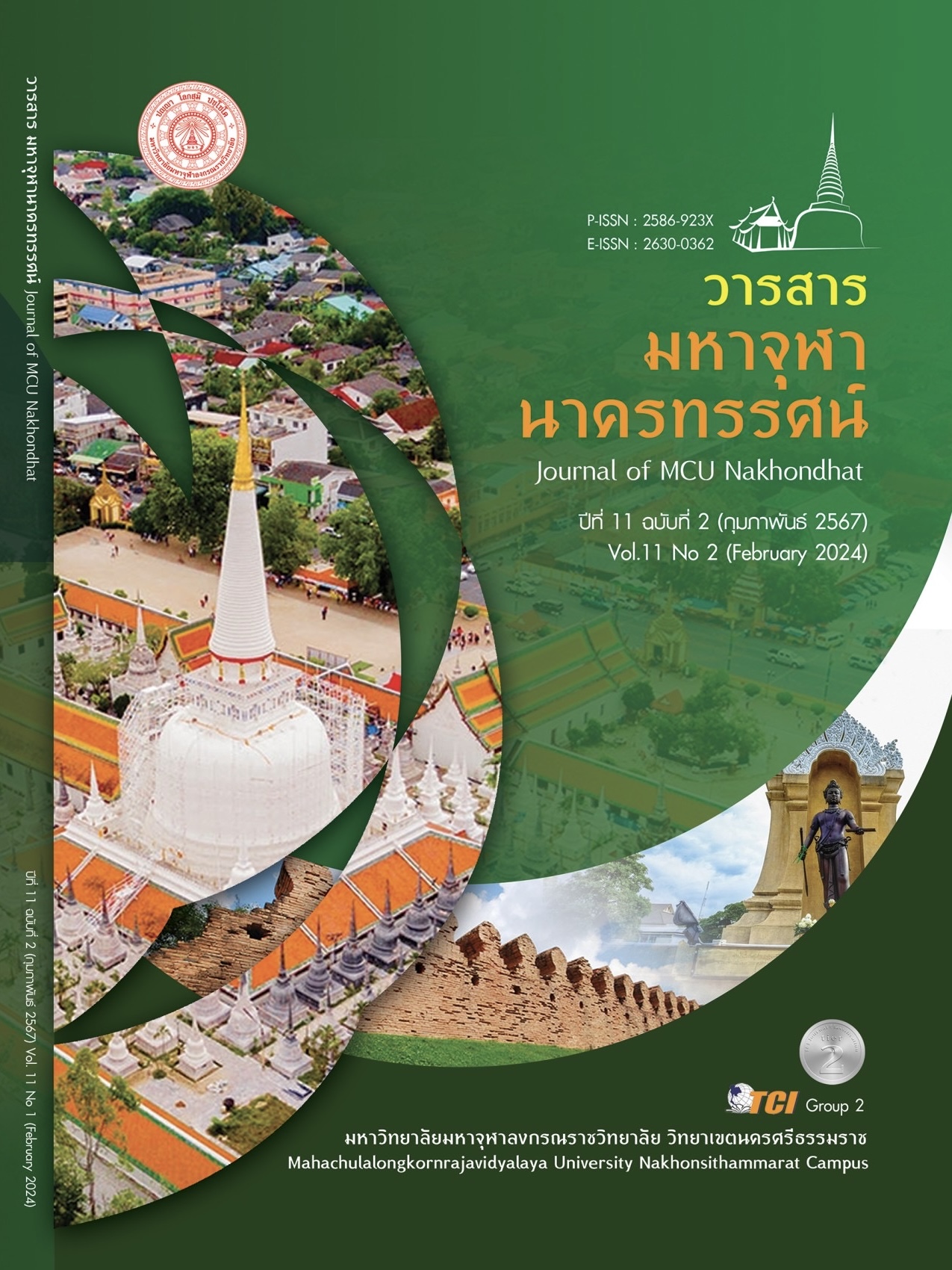GUIDELINE TO SOLVE TEACHER’S ACADEMIC PROCRATINATION OF PUBLIC UNIVERSITIES IN YUNNAN
Main Article Content
Abstract
The purpose of this research were to 1) study the improvement of knowledge management capabilities of vocational and technological colleges in Yunnan Province; People's Republic of China and 2) evaluate the characteristics of improving the knowledge management capabilities of vocational and technological colleges in Yunnan Province. People's Republic of China.This research study uses a mixed methods research method. The population used in the research included administrators and regular teachers of vocational and technological colleges in Yunnan Province. People's Republic of China, a total of 300 people. The research instrument is a 5 - level estimation scale questionnaire within 7 areas, consisting of 1) knowledge identification, 2) knowledge creation and acquisition, 3) knowledge organization, 4) knowledge processing and screening, 5) knowledge access, 6) exchange. Learn and 7) Learning, which has a reliability of .95. Statistics used in data analysis include percentages, means, and standard deviations. The results of the research found that 1) Improving the knowledge management ability of vocational and technological colleges in Yunnan Province. People's Republic of China, including promoting personnel to learn and to use knowledge gained from training to create new work. morale boosting Opening opportunities to develop the potential of personnel to express their knowledge and abilities creatively for the organization and 2) Results of the assessment of characteristics for improving overall knowledge management ability. at a high level When considering each aspect, it was found that the greatest was learning (μ = 4.68, σ = 0.42), followed by the processing and filtering of identification knowledge. Creating and seeking knowledge Organizing knowledge into a system and the least is the aspect of access to knowledge. and exchange of knowledge respectively
Article Details

This work is licensed under a Creative Commons Attribution-NonCommercial-NoDerivatives 4.0 International License.
References
บุญดี บุญญากิจ และคณะ. (2547). การจัดการความรู้จากทฤษฎีสู่การปฏิบัติ. กรุงเทพมหานคร: ซีเอ็ดยูเคชั่น.
พรธิดา วิเชียรปัญญา. (2547). การจัดการความรู้พื้นฐานและการประยุกต์ใช้. กรุงเทพมหานคร: เอ็กซ์เปอร์เน็ท.
Bergeron, B. (2003). Essentials of knowledge management. New Jersey: John Wiley & Sons.
Chell, J. (2001). Introducing Principal to the Role of Instructional Leadership: A Summary of Master's Project. New York: McGraw - Hill.
Collison, C. & Parcell G. (2004). Learning to Fly: Practical Knowledge Management from some of the world's leading learning. 2004. 45-47. New York: Authur P. Brief.
Hill, J. & Mcshane A. (2008). Principles of Management. New York: McGraw-Hill.
Hollander, E.P. (1978). Leadership in Dynamies: A Practical Guide to Effective Relationships. New York: The Free.
Inkpen. (1996). Creating Knowledge through collaboration, California Management Review. New York: Authur P. Brief.
Koontz, H. & Weihrich, H. (1988). Management. 9th ed. New York: McGraw-Hill.
Liebowitz Thomas, J. (1998). Beckman. Edition 1st Edition. First Published 1998. eBook Published 11 September 2020. New Jersey: Location Boca Raton.
Muchinsky, P.M. (1997). Psychology Applied to Work An Introductions to Industrial and Organizational Psychology. 5 th ed. California:Brooks/Cole. Organization. 2 th ed. West Sussex: Capstone.
Peter, M. (1990). The fifth discipline :The art and practice of the learning organization. London: Century Press.


